
Exciting new series on “Voice, Body and Movement for Lawyers – How to connect with the jury and find Justice Through Dramatic Technique!”
Click here to find out more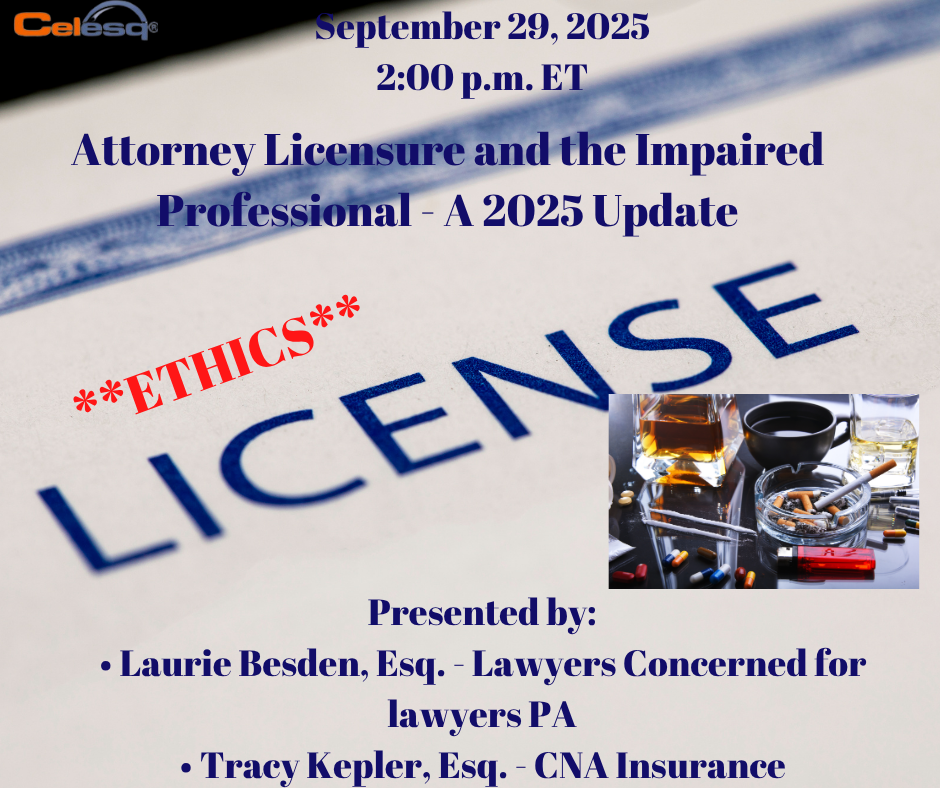
Substance use disorders and mental health challenges can affect any attorney regardless of gender, culture, ethnicity, age, or socioeconomic status. This program, taught by seasoned attorneys Tracy Kepler and Laurie Besden, instructs attorneys on how to recognize the impaired professional, provides various resources to assist in the recovery, and identifies the possible disciplinary implications of an impaired attorneys' conduct.
Ms. Besden will share her personal journey from the darkness and depths of despair, while struggling with a substance use disorder, as a license attorney, to her path of long-term recovery, where she received a full Governor’s Pardon by Governor Wolf in 2020.
We will be discussing multiple Ethics rules, including; MRPC Rule 5.1 (a) & (b), NM RPC 16-501, MRPC Rule 8.3 (a) and (c), ABA FORMAL OPNINION 03-429 (2003), VA LEO 1886 (2016), D.C. LEO 377 (2019), and MRPC 1.1, 1.16 (a)(2).
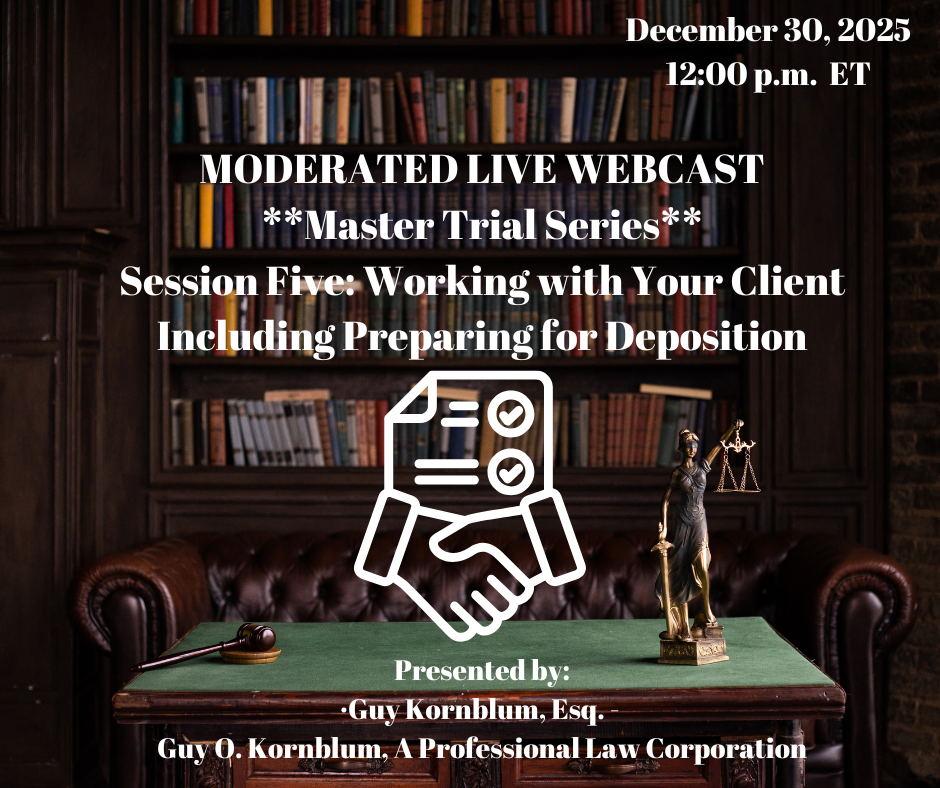
MODERATED-Session 5 of 10 - Mr. Kornblum, a highly experienced trial and litigation lawyer for over ...
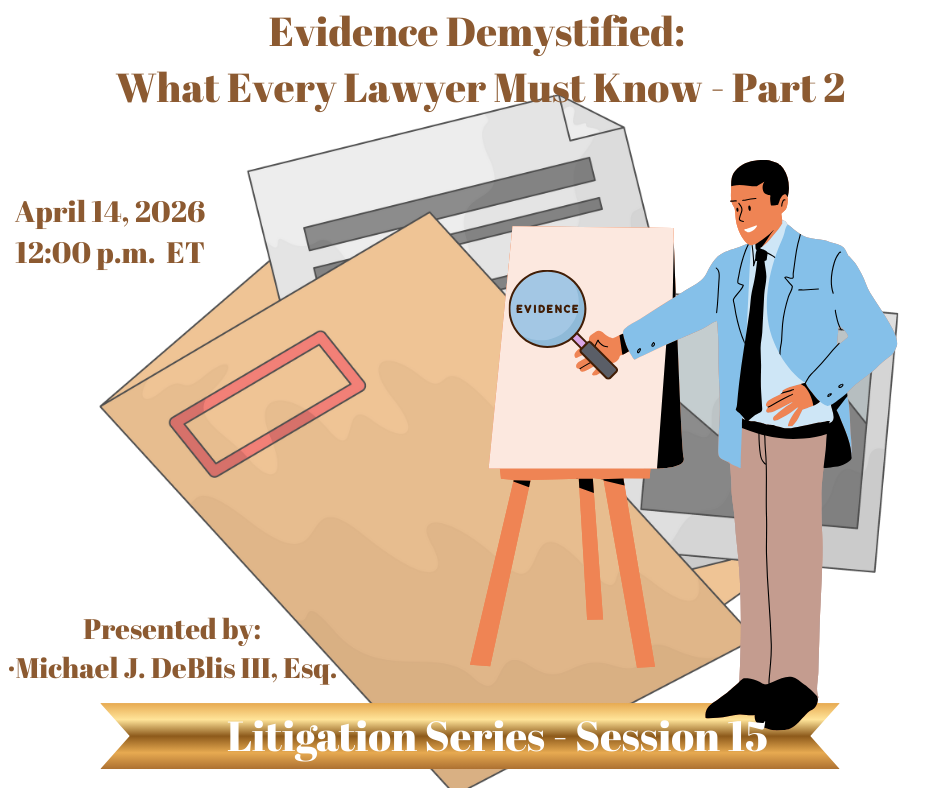
Evidence Demystified Part 2 covers key concepts in the law of evidence, focusing on witnesses, credi...
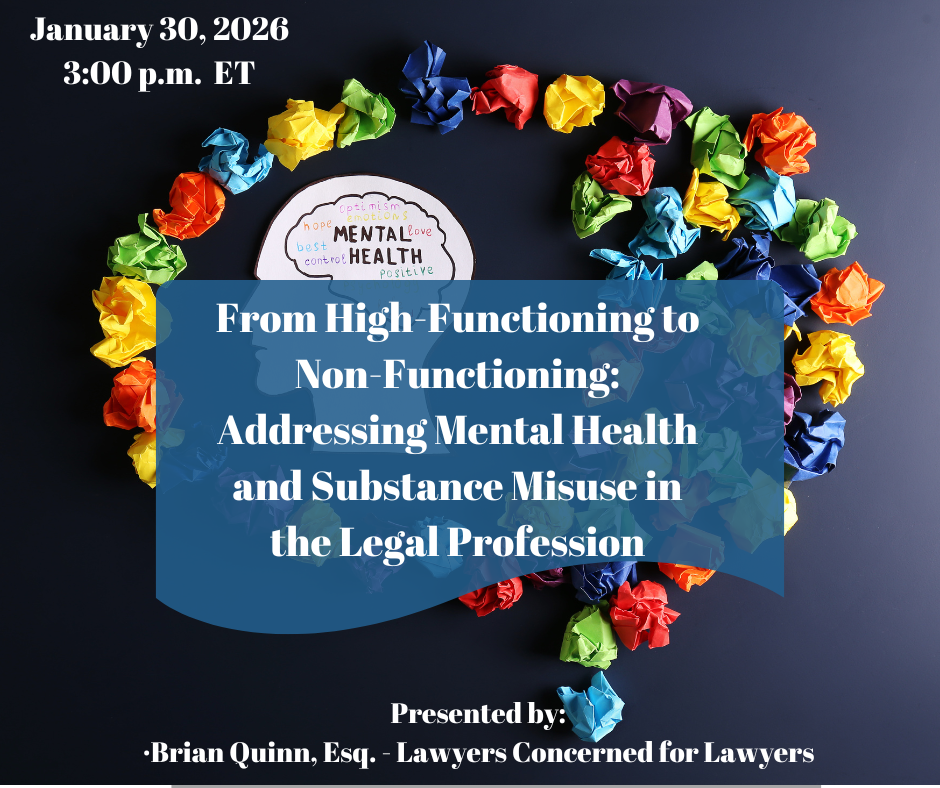
“Maybe I drink more than I should, but it isn’t affecting my life-I’m ‘High-...
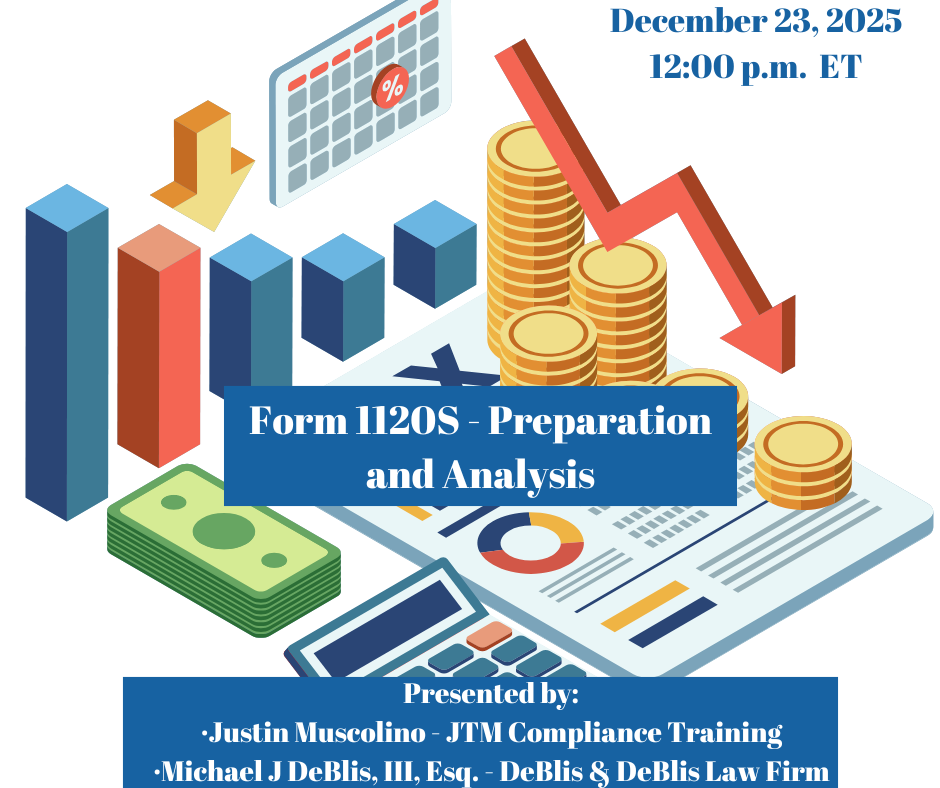
This course provides attorneys with a detailed examination of Form 1120S, including legal considerat...
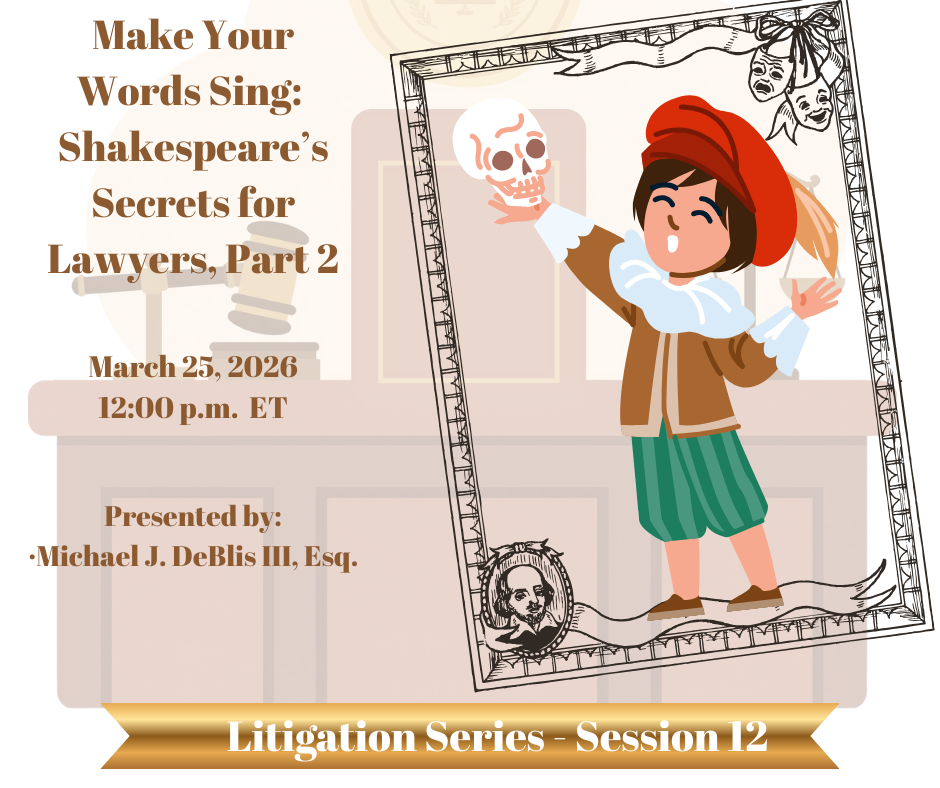
This companion program to Part 1 goes deeper into the rhetorical power of Shakespeare, emphasizing h...
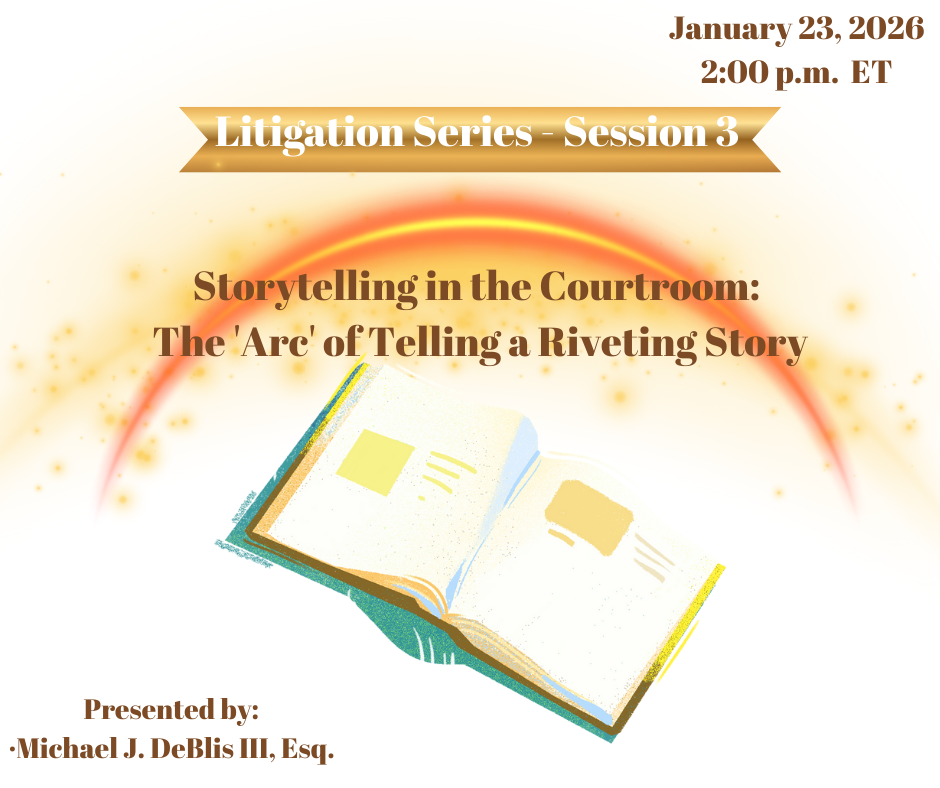
This program explains the architecture of storytelling in the courtroom, using narrative arc, rhythm...
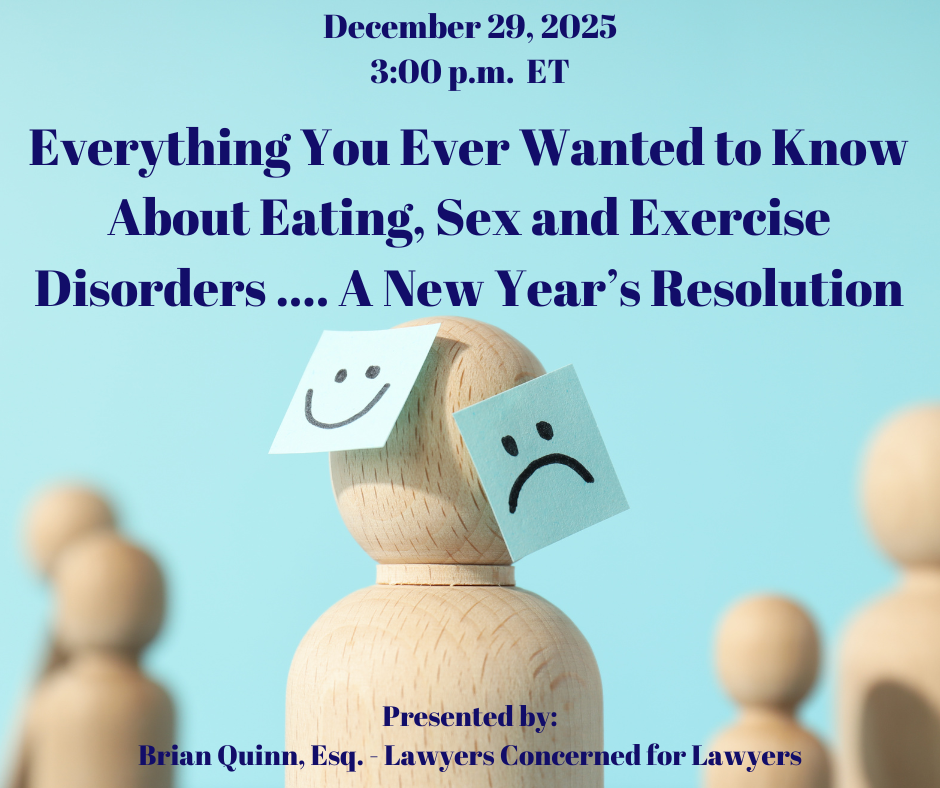
Food, sex, exercise – all may involve a variety of commonly enjoyed experiences that are healt...
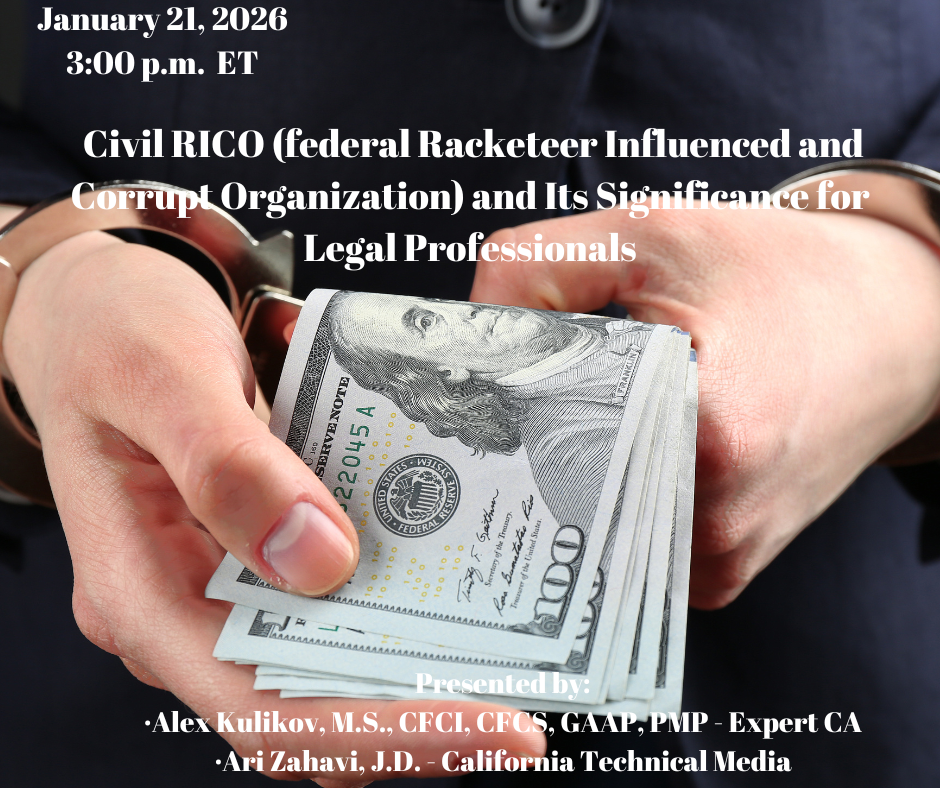
The Civil RICO framework allows individuals and businesses to pursue legal action for damages from a...
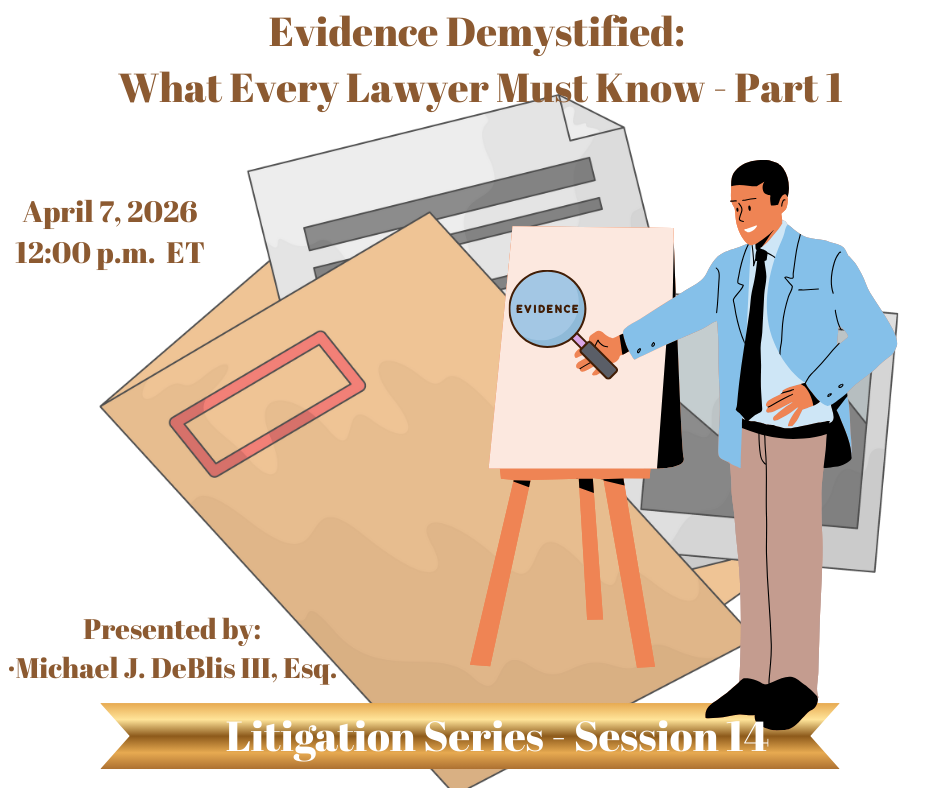
Evidence Demystified Part 1 introduces core evidentiary principles, including relevance, admissibili...
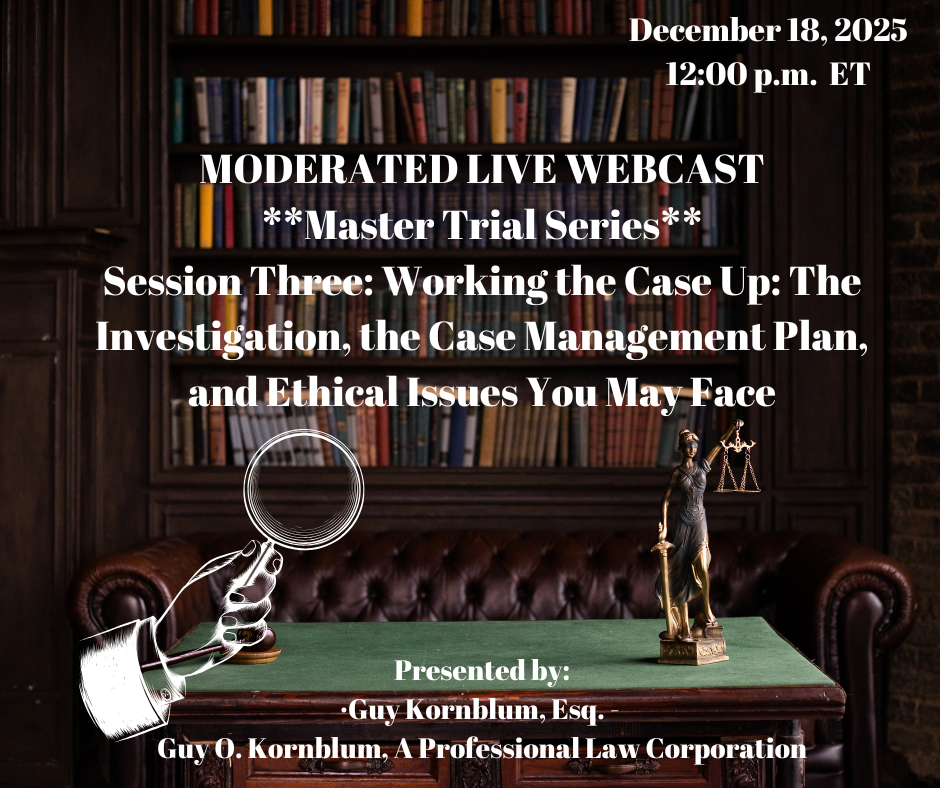
MODERATED-Session 3 of 10 - Mr. Kornblum, a highly experienced trial and litigation lawyer for over ...